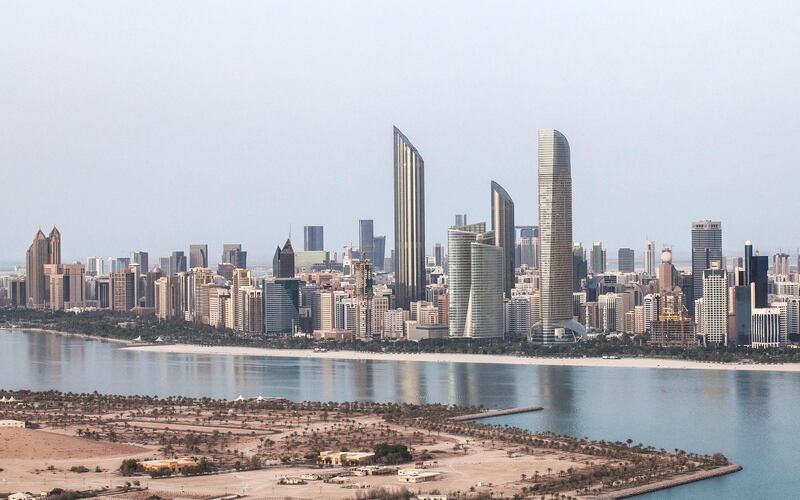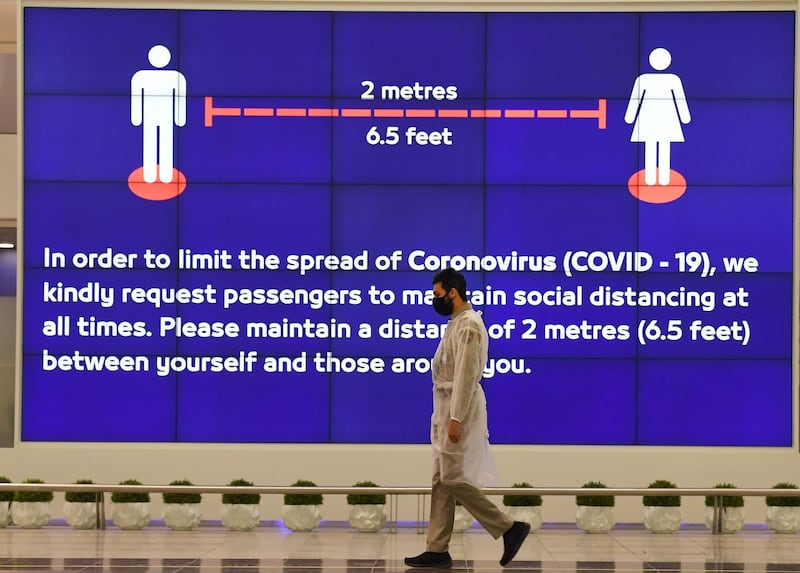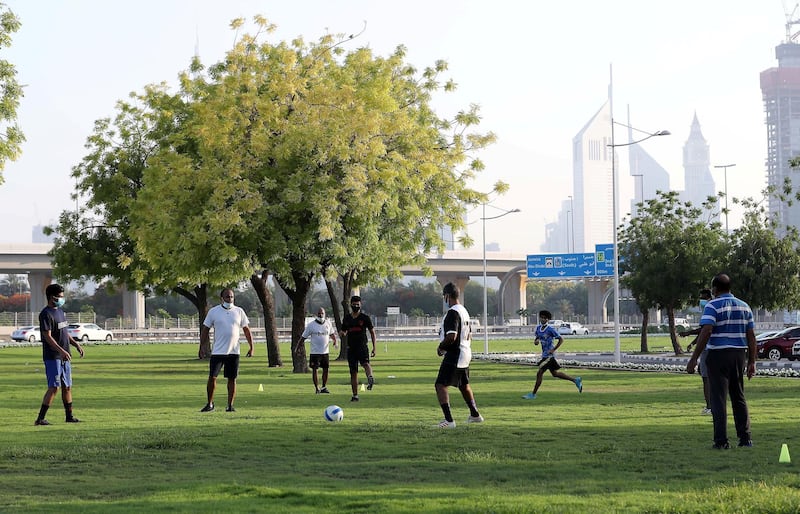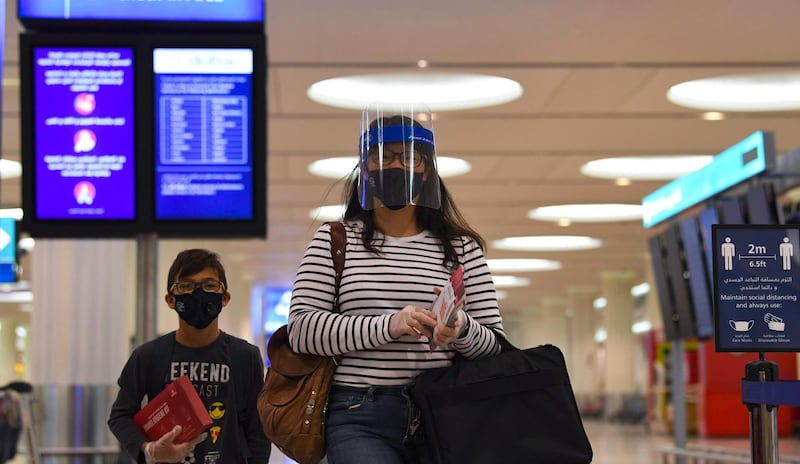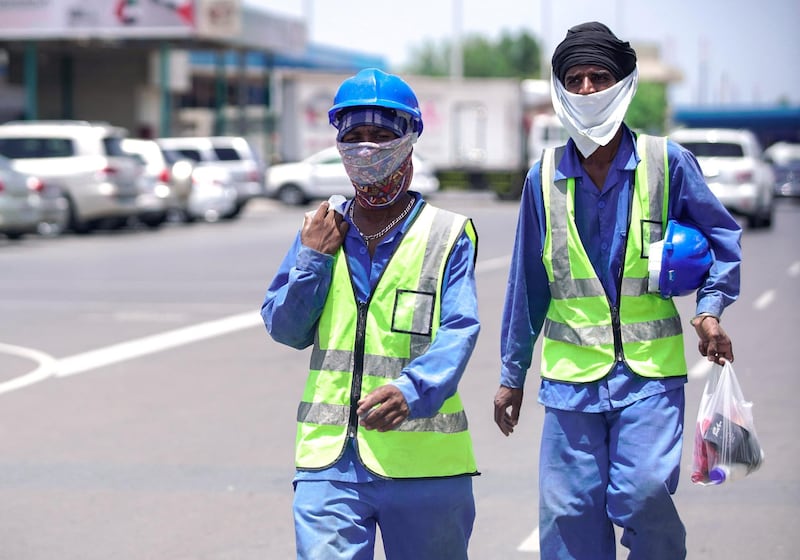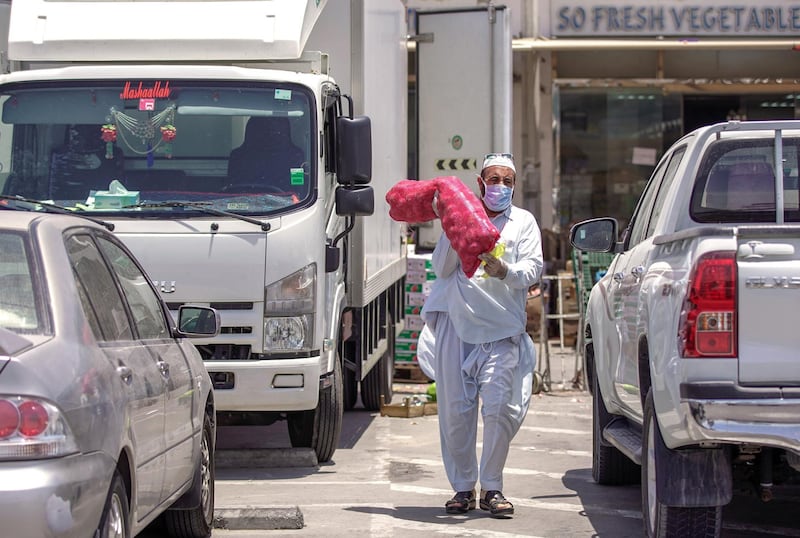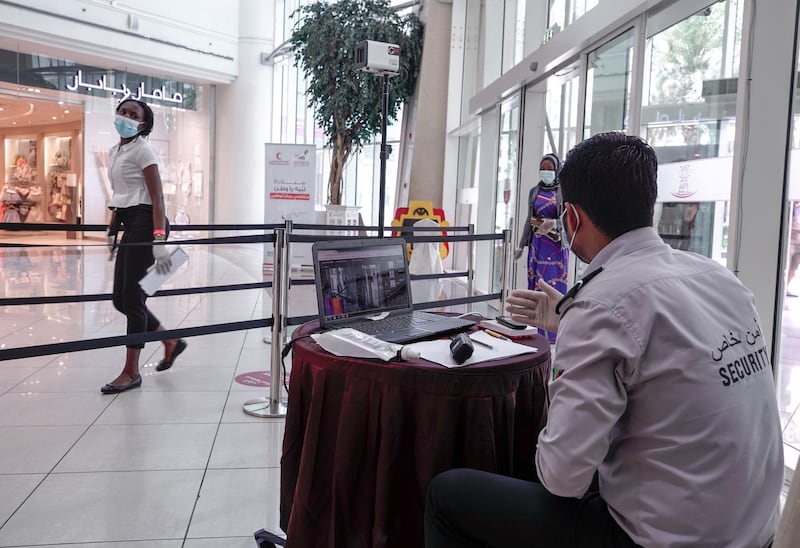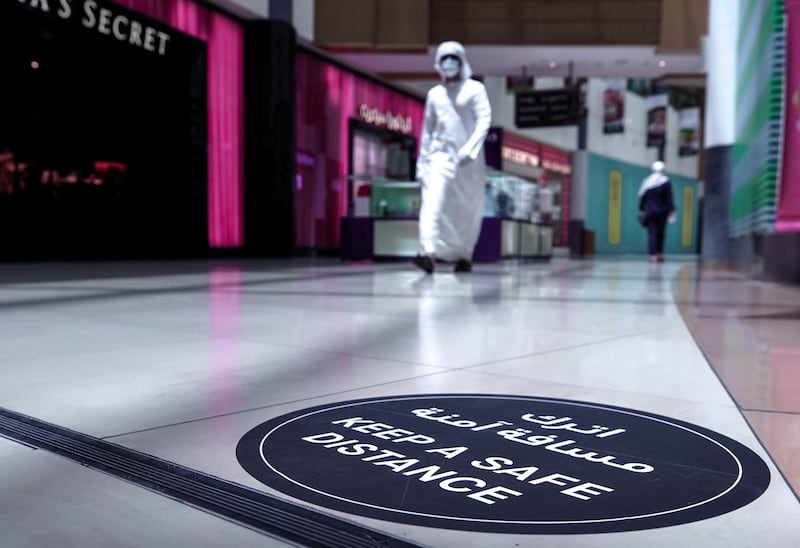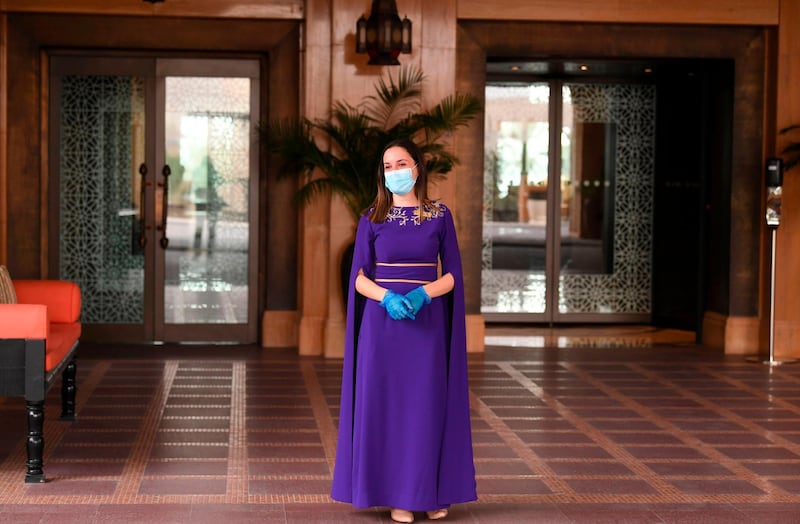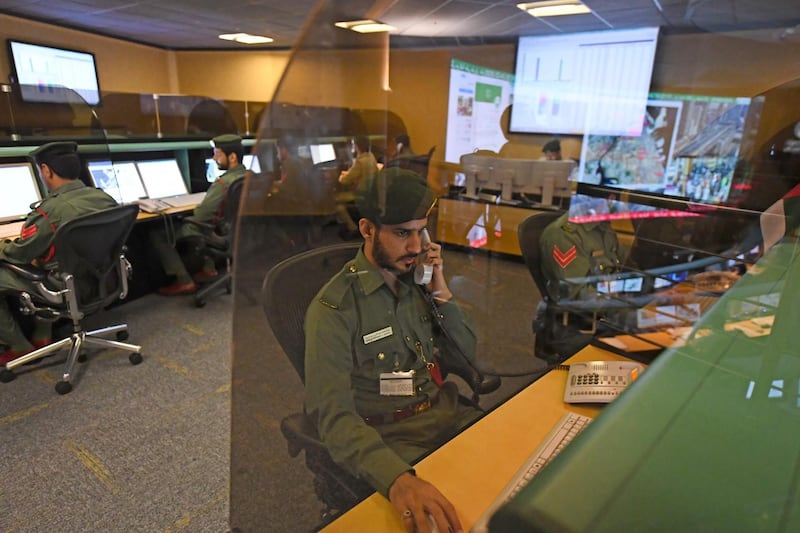No more than 35 per cent of staff will be permitted to work from government offices in Abu Dhabi and employees will have to scan QR codes on their phones when they enter the building.
The guidance, announced by the Abu Dhabi Government Media Office, came as employees across the country returned to their workplaces on Sunday.
The rules governing the return to the office for Abu Dhabi Government employees state paperwork should be avoided and the use of handles minimised.
No more than two people will be permitted to use a lift at any one time.
The Department of Government Support has issued a set of guidelines for working from government entities in Abu Dhabi, to ensure the health and safety of employees and clients. pic.twitter.com/KIJbGVy2zk
— مكتب أبوظبي الإعلامي (@admediaoffice) May 30, 2020
Face masks and gloves must be worn at all time and there will also be ban on handshakes.
Prayer rooms and shared areas will be closed. Videoconferencing systems should be used for meetings and everyone should wash or sanitise their hands regularly.
Glass barriers should be installed to separate employees and customers and people should remain two metres apart from others at all times.
Before leaving home, Abu Dhabi government employees should check their temperatures and travel in their own car, avoiding public transportation where possible.
Once they arrive at work they will have their temperature taken and a QR (quick response) code scanned on their phone.
It was not made clear how QR codes - commonly used to store information similar to a barcode - would be specifically used in Abu Dhabi offices.
Everyone will be encouraged to download the government's Al Hosn app, which displays people’s health status and helps identify people at risk of contracting Covid-19.
“Government entities continue to work at full capacity while applying the guidelines and taking into accounting that maximum attendance does not exceed 35 per cent of the workplace capacity,” the Department of Government Support said.
“Capacity of government entities to be reviewed and updated weekly, as per requirements.”
Several Abu Dhabi government employees are exempt from returning to offices, including those who live with people who have the virus or show symptoms.
People who live with family members who have been exposed to Covid-19 cases, or who are at risk of being infected due to the nature of their work are also excused.
Others who suffer from chronic health conditions or live with people who are vulnerable or need constant care may continue to work from home.
People who are disabled, pregnant, breastfeeding, or over the age of 60 are also excused, as are parents of children below Grade 10 at school.
The exemption applies to one parent and is valid until the end of the academic year.
Dubai has also imposed similar restrictions on who can return to offices, even as it moves faster to bring employees back.
In two weeks' time the emirate's entire public sector will once again work from the office, two months after employees were asked to work from home.
Workplace attendance rates will gradually increased from 30 per cent for the federal government as the coronavirus crisis subsides.
The temporary closure of government service centres and offices across Abu Dhabi prompted a sharp increase in the use of online services.
Online government service transactions surged by 83 per cent during the Digital Month initiative, which concluded in April, pushing user numbers beyond one million.
